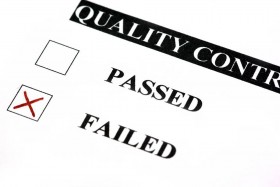Types of Breach of Warranty Claims

In most cases, contracts for the sale of goods include warranties. Typically, we only think about things like warranties and product guarantees when it comes to significant purchases like cars and household appliances. But in reality, every product that you buy is a type of contract. Even if you don’t get any paperwork that tells you about warranties, there can still be warranties that are implied. And if a product fails to live up to the claims and promises made about them, it can potentially mean that consumer safety is put in jeopardy.
A breach of warranty can occur in a few different ways. Let’s take a look at the main types of warranty claims:
Types of Warranty Claims
Warranty of Title
Any seller of goods warrants that the title transferred is a good title and that there are no encumbrances on the purchased goods at the time of contracting. Basically, this means that the person selling an item has a legal right to sell it and that nobody else has a legal claim to it. For example, a warranty of title breach could occur if a person sells a car, but it turns out the car is stolen or a bank has a lien on it.
Implied Warranty of Merchantability
If the seller is a merchant (a person that normally deals in the particular good bought) it implies that the item purchased is fit for the ordinary purpose for which such goods are intended, without problems like improper product labeling or design/manufacturing defects. It doesn’t matter if the seller knew that the goods you purchased were defective. Sellers have absolute liability.
Implied Warranty of Fitness for a Particular Purpose
When the seller has a specific reason to know the particular purpose for which the goods purchased are to be used, and that buyer is relying on the seller’s particular knowledge or skill, there’s an implied warranty that the goods will function as bargained for. For example, the seller knows that I want a boat to tour around the Great Lakes. That boat ought to be able to handle such bodies of water or the seller is in breach.
Express Warranty
This is any statement of fact or promise made by the seller to the buyer: description of the goods, a model used to depict the goods, or a statement about performance. An express warranty must be part of the basis of the bargain that the buyer relied upon. Be wary of seller’s talk or statements that are also known as sales puffing. These statements are not regarded as express warranties, i.e. “This is the best snowboard on the market.” On the other hand, let’s say a dealership sells a used car stating that the brakes have been fully refurbished. But two days after that car is sold, the new owner gets into a car accident because the brakes failed. That could be considered a breach of express warranty.
Get Help From a Defective Product Lawyer
Often times, whether you’re aware of it or not, a merchant will disclaim various warranties to escape liability. Usually, there is a requirement that such disclaimers be conspicuous so that a reasonable person should have the opportunity to read the disclaimer. An inadequate disclaimer will not effectively disclaim.
Goodwin & Scieszka has been handling defective product claims for over 30 years. If you’ve been injured as a result of a dangerous product, contact our Birmingham, MI offices. We’re here for you when you need us most.

If you have been injured in any type of accident, contact us immediately by phone or email. You pay nothing until we take your case to trial or settle. With over 30 years of litigation experience representing the “little guy” against the largest insurance companies, corporations, and hospitals, we’ll get you the money you deserve.
Explore our websiteo find out more information on the services we provide and why we have been named Michigan Super Lawyers for the last eight years and Dbusiness’s Top Lawyers for the last three. Whatever your accident or injury, we are ready to Win Your Case!
Call us at 1-888-GOODWIN (466-3946)






